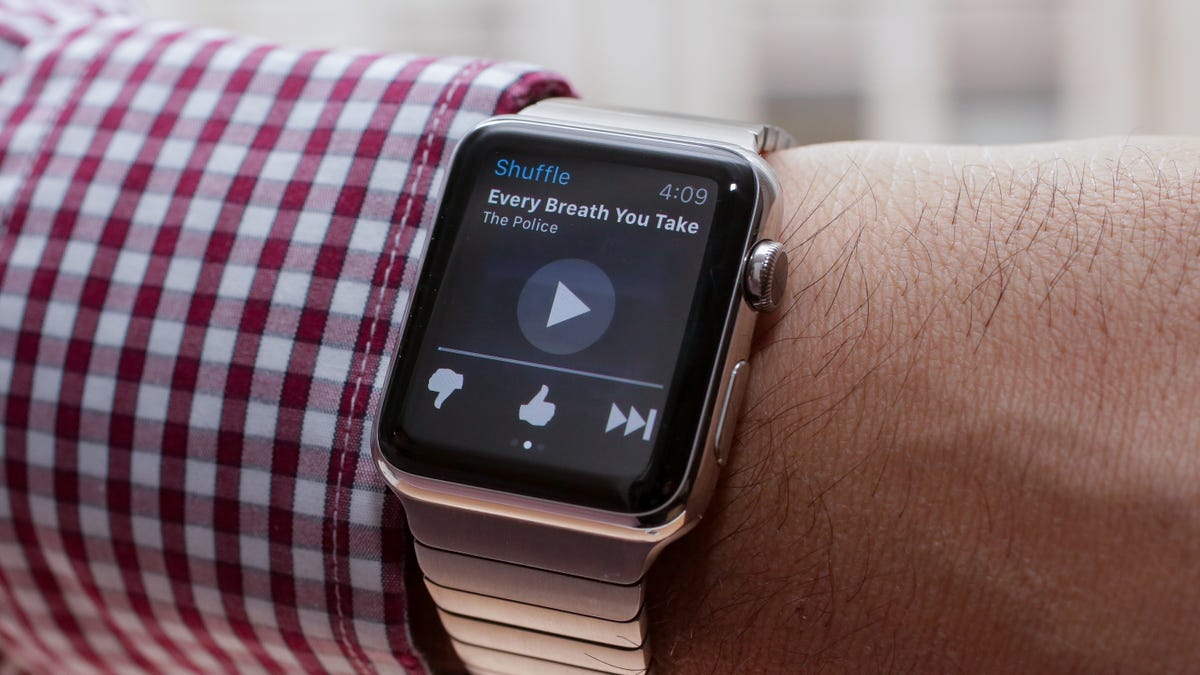Pandora listeners can hear only so much
The Internet radio service's growth in listeners has lost the zippy tempo of its earlier years. That's why you'll soon start seeing offers to buy tickets with your music streams.

What's a company to do when its financials keep playing the same humdrum tune? Pandora is picking up new instruments.
Pandora, best known for its Internet radio service, also wants to be your concierge for local concerts. As it struggles to make money, the company is hoping to bring listeners closer to the artists they love through businesses like ticketing.
The expansion into this new area comes as streaming-music competition amps up with rivals Spotify and Apple Music, the latter of which launched at the end of June with a three-month free trial for iTunes users. At the same time, the growth in the number of Pandora's listeners continues to slow.
Take the company's third-quarter results. Oakland, California-based Pandora reported on Thursday another period of waning growth in its number of listeners and the amount of time they spent streaming songs. Listener-hour growth was 3 percent, and the number of active listeners was up 2 percent, to 78.1 million. A year earlier, total hours grew 25 percent and listeners were up 5.2 percent.
Chief Executive Brian McAndrews angled the results as positive. "Pandora more than held its own," he said in a release discussing the financial performance. He noted the latest period included a "large new entrant" in Apple Music, and he pointed out that the streaming-music sector spent millions in marketing, which ended up helping consumers become more aware of all their options.
Earlier this month, the company agreed to buy online ticketing agent Ticketfly for $450 million, which eventually will let listeners buy concert tickets through Pandora. Executives at both companies pitched the combo as transformative, as it marks the first time that a company focused on personalizing music at a large scale will also be connecting fans with artists when they roll into town.
Unfortunately for Pandora, it's still up for debate whether ticketing will help turn a profit. For listeners, the company's bottom-line troubles may mean Pandora simply becomes more helpful as it strives to find new ways to serve them.
Thursday, Pandora reported a loss of $85.9 million, or 40 cents a share, widening from $2 million, or a penny a share, a year earlier. Excluding unusual items, profit rose by a penny to 10 cents a share.
Revenue rose 30 percent to $311.6 million.
An average of analysts' estimates predicted a 10-cent-a-share profit on $313 million in revenue. That revenue prediction was inside the guidance that Pandora provided in July, for revenue of $310 million to $315 million.
Pandora also said it had reached a $90 million settlement with record labels, which would represent more than a quarter of its revenue in the latest period. Their dispute centered on whether and how Pandora pays royalties for music made before 1972, the year that sound recordings were first protected by federal copyright law. It's the latest move by Pandora to smooth over its tense relationship with the recording industry and artists, and won't have an impact on the kinds of music its listeners get to hear.
"This progress points to a greater opportunity to work collaboratively toward a bright future for music in a digital era, those who make it, and the fans who love it," McAndrews said.
Shares, however, retreated 15 percent to $16.32 in after-hours trading.

